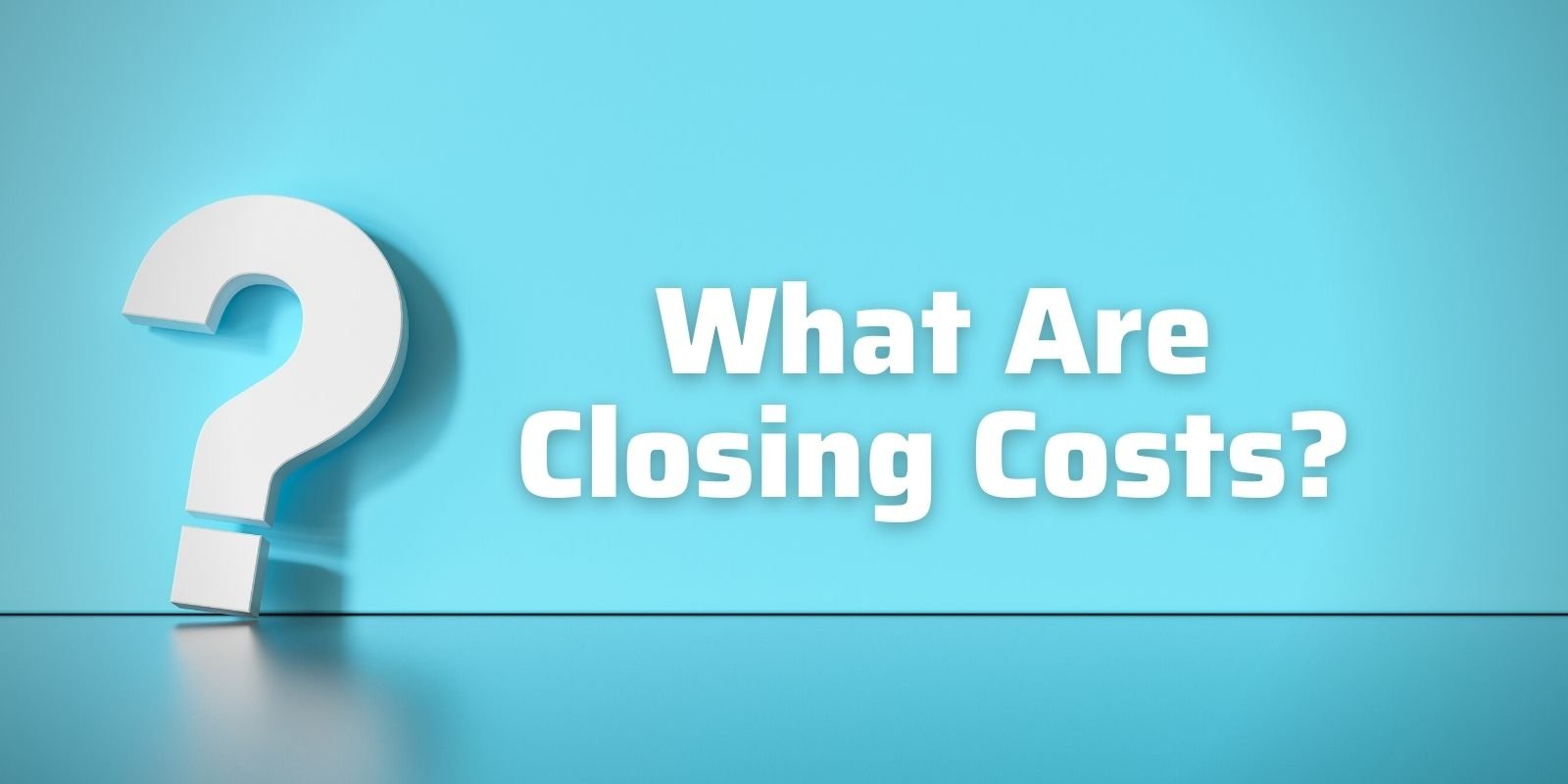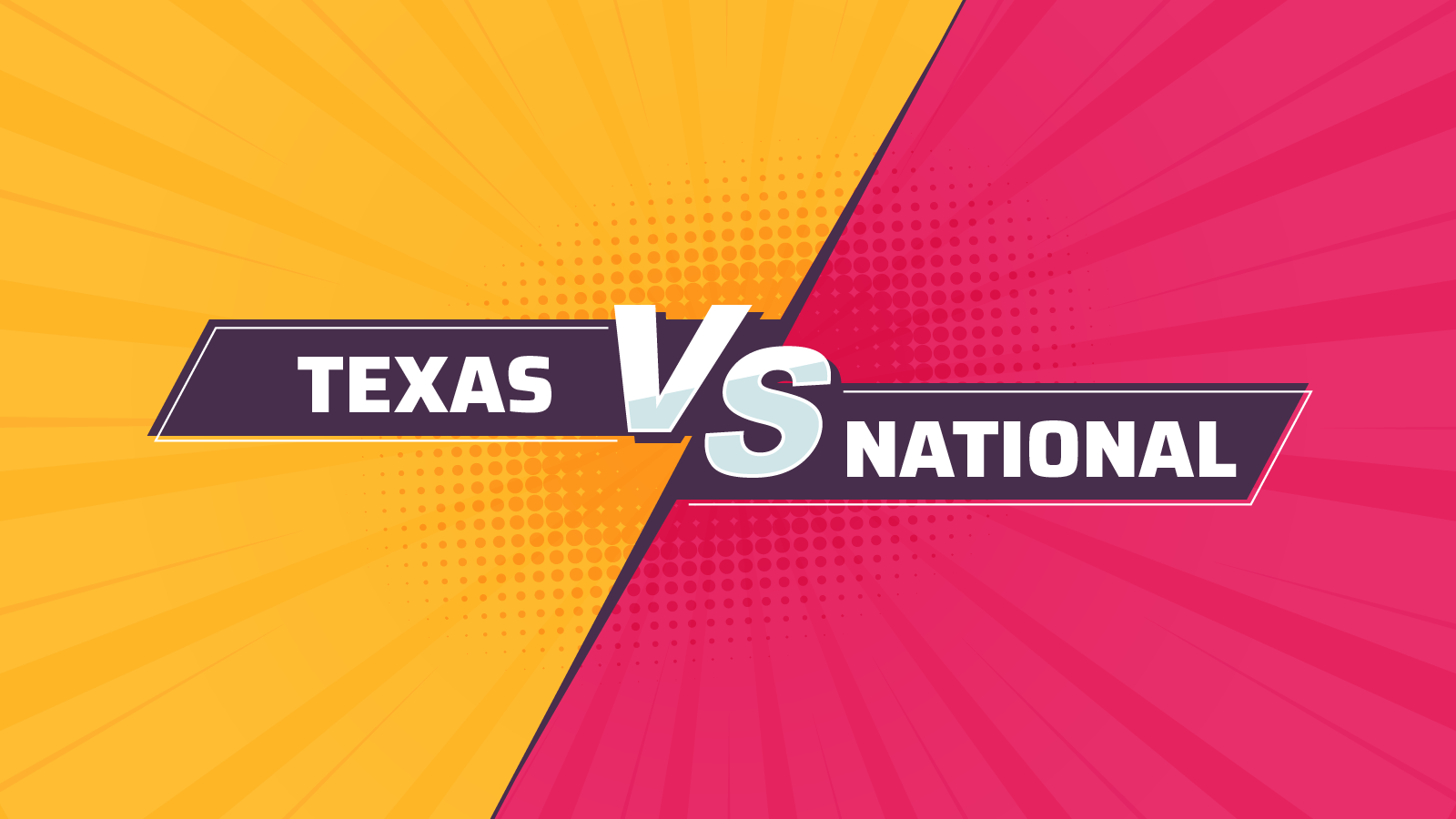You’ve scrimped and saved, and you’re finally ready to put a down payment on a house.
You’ve got financing all lined up.
All is well until you discover a shocking truth—you need EVEN MORE cash to close on the mortgage loan due to closing costs.
If you’re a first-time homebuyer, you’re probably wondering what real estate closing costs are for and whether you really need to pay them. (Sadly yes, you do).
In this article, we’ll explain which closing costs are traditionally paid for by the buyer and which ones the seller covers.
We’ll also break down each line item you’re likely to see and explain when it applies, as well as a few tips to keep your closing costs as low as possible.

What Are Closing Costs?
Closing costs is a general term that includes all the fees, expenses, taxes, and other charges associated with drafting and closing on a mortgage loan.
Some of these are regulated by the government, and others are charged by the lender, real estate attorney, or title company.
These charges vary based on the type of loan, the location, age, and size of your home, and other factors.
Paying closing costs is part of the real estate closing process.

How Much Are Closing Costs?
This is a common question asked by home sellers.
Closing costs typically make up about 3% – 6% of the home’s selling price.
So for a home with a purchase price of $250,000, you can plan on closing costs being somewhere between $7,500 to $15,000.
The 3% – 6% guideline is great for a back-of-the-napkin estimate, but it’s not a guarantee for how much they will cost.
Your closing disclosure document will outline exactly how much your closing costs will be and have a line item charge for each one.

Who Pays for Closing Costs?
Typically the buyer pays for the majority of closing costs, but this is up for some degree of negotiation.
Not negotiating closing costs is a common mortgage shopping mistake.
Sellers that want to offload a property quickly or to entice buyers in a slow market often volunteer to pay for part of the closing costs.
However, there is a limit to how much sellers can sweeten a deal.
Mortgages issued from Fannie Mae or Freddie Mac (the government’s mortgage investment arms) have a cap on how much sellers are allowed to pay toward closing costs.
This cap ranges from 2% – 9% of the purchase price, depending on the loan-to-value ratio of the mortgage and whether or not it is a primary residence.
For instance, seller concessions are maxed out at 2% for investment properties, but an FHA loan with 25% down would be capped at 9%.
For conventional mortgages with the traditional 20% down, seller-paid closing costs max out at 6%.
As long as you stay within Freddie Mac’s/Fannie Mae’s limits, you can arrange the closing costs in any way that meets the needs and expectations of both parties.

Closing Costs Explained
Closing costs aren’t a fixed percentage like taxes; each buyer will pay a different amount in closing costs.
Some costs are lender fees, some are government requirements, and others are optional.
The varying factors in buyer’s closing costs are the location of the home, the lender, and the loan type.
The lender will outline each of these costs in the closing disclosure document three days before closing.
Below, we’ve outlined some of the most common closing costs you might see on your disclosure document.
Appraisal Fee
The lender wants to know if the property is worth what you’re paying for it, so they’ll order an independent appraisal of its value.
A typical appraisal costs $300 to $450, but this can be substantially more if the property is large or comes with a significant amount of land.
We compiled a list of the top 15 factors that can lower a home’s appraised value.
Attorney Fees
This is charged by a real estate attorney to review documents and contracts.
Each party is responsible for their own attorney’s fees.
Texas does not require that an attorney be at the closing table, but some other states do.
Closing Fee
This is also sometimes called a settlement fee or an escrow fee.
It is paid to the company that handles the escrow account and earnest money and is in charge of the closing.
This could be an escrow company, a title company, or a real estate agent, depending on the state.
Courier Fee
These are fees paid for transporting physical documents to closing.
If you’re closing digitally, you shouldn’t have to pay a courier fee.
This fee should be minimal.
Credit Reporting Fee
The bank or mortgage lender will pull a buyer’s credit report as part of the underwriting process.
This usually costs around $30-$50.
You may have to pay this prior to receiving a loan estimate, depending on how your lender operates.
Discount Points
Paying discount points upfront will reduce the amount of interest you pay over the life of your mortgage.
Each point costs 1% of the loan amount and typically reduces the interest rate by %0.25.
If a buyer chooses to pay discount points, the amount will be due at closing.
Escrow Fees
An escrow company (or in some cases a title company or real estate attorney) facilitates the transaction of funds between the buyer and the sellers.
The escrow fee pays for that service and the associated paperwork.
This is typically split between the buyer and the seller, but it’s not uncommon for either party to pay for the whole thing.
This is also referred to as a settlement fee or a closing fee.
To learn more about escrow, check out our guide that explains what escrow is and how it works.
FHA Mortgage Insurance
FHA loans require a unique type of mortgage insurance.
They require an upfront payment of 1.75% of the value of the loan due at closing, as well as monthly mortgage insurance payments (MIP).
The annual total of these payments depends on how much you put down, how much you borrow, and for how long, but they range between 0.45% and 1.05% per year.
For instance, if you bought a $150,00 house on a 30-year mortgage with a down payment of 5%, you’d owe 0.80% of the loan each year.
That translates to $1,200 per year, or $100 per month.
HOA Transfer Fee
If an HOA governs the property, there is a one-time fee for transferring the ownership data (security codes, database info, etc.) to the new buyer.
Neither the bank nor the seller have any say in this fee, as it’s issued by the HOA.
The seller is generally responsible for this fee, which runs an average of $225 to $250.
Homeowners Insurance
If you have a mortgage on a property, the bank will require you to carry homeowner’s insurance, which must meet the bank’s standards for adequate coverage.
The buyer must pay one year’s worth of insurance upfront at closing.
This cost will vary based on the age, condition, size, and location of the house, as well as the level of coverage.
Buyers can and should shop around and compare rates from different insurance companies.
Loan Origination Fee
The lender charges this fee to cover the costs of administering and underwriting a mortgage.
Because this fee is issued by the lender, the buyer has some room to negotiate it (though doing so might result in a higher interest rate).
Origination fees typically cost 0.5% – 1% of the total loan amount.
Lender’s Title Insurance
Lenders typically require buyers to carry title insurance to protect the amount they lend from any undiscovered liens, errors, disputes, or other problems with the title.
Although most lenders provide a list of their preferred partners, you can shop around for title insurance—and you don’t just have to pick from their list.
However, in certain states (like Texas), title insurance fees are fixed by the government.
To learn more about lenders, check out our guide on finding the best mortgage lender.
Lead-Based Paint Inspection
If the seller knows about any lead-based paint on the property, they must disclose it to potential buyers.
However, if the home you’re buying was built prior to 1979, you’ll likely need a lead-based paint inspection as part of the general inspection process to detect any toxic paint the seller doesn’t know about.
This fee will set you back around $317 or so, and it’s typically paid by the buyer.
Origination Fee
The lender charges this fee for the cost of creating a new loan for you, including processing your application.
It usually costs between 0.5% and 1% of the loan amount.
This charge may include underwriting (financial analysis and risk assessment) or it may only include the administrative costs of your loan.
Owner’s Title Insurance
Just as your lender wants to protect themselves from any claims or suits surrounding your property’s title, you may also want the same protection.
If you do, you’ll need to purchase owner’s title insurance, as your lender’s policy will not protect you as the buyer.
In Texas, these rates are regulated by the state.
A $50,000 policy costs $496, and a $100,000 policy costs $832.
Pest Inspection Fee
Wood-boring insects like termites, wood bees, or carpenter ants can wreak havoc on the structural integrity of a house, so you may need to get a pest-specific infection if there is evidence of an infestation.
A pest inspection costs about $100.
Private Mortgage Insurance
If you put less than 20% down on your loan, the lender requires that you have private mortgage insurance (PMI).
Not to be confused with homeowners insurance that protects against disasters and damage, mortgage insurance protects the lender against the buyer defaulting on the loan.
This fee is a recurring monthly fee, though it may be removed once there is 20% equity in the property.
The first installment is due from the buyer at closing.
Property Taxes
Mortgages don’t typically close on January 1st, so the buyer and the seller will each be responsible for their portion of the year’s property taxes, depending on how much of the year each person owned it.
For states where taxes are paid in arrears, the seller will pay for their portion of this year’s taxes that the buyer will end up filing.
For states where taxes are paid in advance, the buyer will reimburse the seller for their portion of the yearly taxes that have already been paid.
Rate Lock Fee
A rate lock guarantees the buyer that their interest rate will not rise if the loan closes within a set period of time, even if the market rates increase.
Rate locks are typically good for between 30-60 days.
Some lenders charge a fee to lock the rate, while others bake the cost of a lock into the interest rate they offer, so you may or may not see this charge on your closing disclosure.
Real Estate Agent Commission
If you list your home with a real estate agent, you’ll owe them a commission for their services of marketing your home and facilitating the sale.
This is often the biggest closing cost to the seller, usually 5%-6% of the sale price.
Recording Fee
The government charges this fee to cover the administrative costs of recording the change in ownership of the property.
The cost will vary from county to county, but the recording fee usually costs around $125.
The buyer pays this fee most of the time.
Survey Fee
Some states require you to have a recent survey to verify the boundaries of the property before you can buy it.
If you need to have a survey done, plan on it costing around $300 – $950—possibly more if the land is large or oddly shaped.
Title Search Fees
A title company (or real estate attorney in some states) needs to do research to determine that the property you want to buy has a “clean” title.
This means it is free of any bankruptcies, liens, unpaid taxes, or other claims to the property by other parties.
This fee will set you back $200 – $400.
Transfer Tax
Some states and/or local governments charge a transfer tax when properties change hands.
(Texas does not charge transfer taxes.)
You may also see this listed as a deed tax, mortgage registry tax, or stamp tax.
Underwriting Fee
Your lender charges this fee to cover the costs of verifying your credit, income, assets, and employment, as well as the risk analysis in deciding whether to lend to you.
This is sometimes lumped in with a loan origination fee, or it may be broken out as a separate line item.
Credits Toward Closing Costs
Often a seller will offer a buyer a credit at closing time to monetarily compensate the buyer for repairs the seller is unwilling or unable to handle.
This sweetens the deal for the buyer because they have to come up with less cash to close, and this helps the seller because they don’t have to worry about getting repairs done in time for closing.
Credits can cover most closing costs, but not things like moving or the down payment.
Seller credits cannot exceed the total of all closing costs.

Closing Costs in Texas vs. Nationally
They say everything is bigger in Texas, but luckily that’s not true of closing costs.
Texas doesn’t have any transfer taxes, so average closing costs were $3,753.65 in 2020.
For comparison, the national average was $6,087 with taxes and $3,270 without.
Since the average loan amount in Texas was $213,334 for 2020, closing costs represent about 1.75% of the loan amount.
Your closing costs may be higher or lower depending on the property you buy, but this is a good, quick guide for how much to budget for closing costs.

How to Reduce Your Buyer Closing Costs in Texas
You might feel a jolt of sticker shock when you add up the closing costs you’re likely to pay, but there is some wiggle room here.
Here’s a few ways buyers can keep their closing costs to a minimum.
- Negotiate lender fees. Some fees (like county recording fees or state-regulated title insurance premiums) are set in stone, but just about anything the lender charges is up for negotiation. The bigger the amount you borrow, the more leverage you have to negotiate these fees. Sit down with your lender to go over their fees in the closing disclosure, and ask for a discount. The worst they can say is no.
- Shop around for services. Just because the lender gives you a list of three title companies doesn’t mean you have to choose one of them. In fact, the closing disclosure has a section to designate which things you can shop around for. Call a few places and compare fees on inspections, title searches, surveys, etc. You could save quite a bit of money this way.
- Roll closing costs into the loan. If your lender will roll closing costs into the loan, that will reduce the amount of cash you have to part with on closing day. This doesn’t reduce your costs per se — technically, it will increase your closing costs as you’ll be paying interest on them along with the rest of your loan. But if you’re squeezing your savings account dry to come up with a down payment, this can be a worthwhile option.
- Ask for seller credits. Knowing what to look for when buying a house will help you to identify any issues with the house that need fixing but aren’t dealbreakers, ask the seller for a credit in lieu of repairs. The seller has their hands full with moving out of the house and doesn’t want to be bothered with replacing the cracked toilet or rewiring the light switch that won’t work. Buyers can use this to convince sellers to help cover some of the closing costs instead of forking out for repairs during this busy time.

Final Thoughts on Closing Costs for Buyers & Sellers in Texas
Nobody gets excited to pay closing costs, but hopefully understanding the purpose of each one will make paying them less irksome.
While some closing costs are not up for negotiation, many lender fees are.
You can potentially save hundreds of dollars just by asking for a discount, comparing vendors, or investigating whether each charge is necessary.
If you want to negotiate seller credits to reduce your closing costs, doing so through a trusted, competent real estate agent is much easier and less awkward than doing it yourself.
Having a seasoned agent on your homebuying team can help you identify which closing costs are necessary and prudent for you to pay, and which ones are fluff you can skip.
If you’re looking for a reliable real estate agent to help guide you through the mortgage loan process, look no further than the oldest Real Estate Agency in Fort Worth, TX: Helen Painter Group Realtors.
Helen Painter’s agents have been representing buyers and sellers in Fort Worth since 1958.
Whether you’re buying or selling property, give us a call today for a free consultation.

